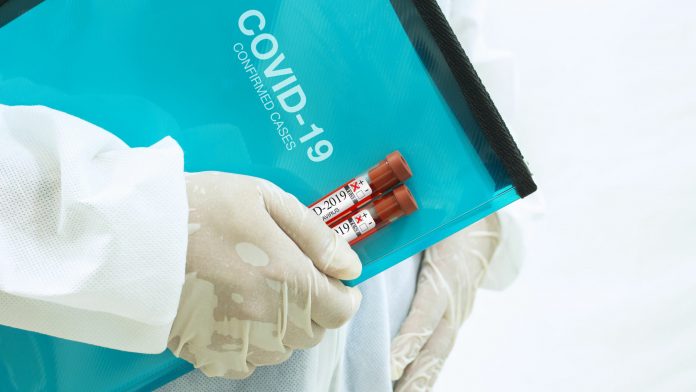
Mindy Clark of Sarasota, Florida, drove to a COVID-19 testing site at Manatee Rural Health because she thought she might have contracted the virus. At the drive-thru testing center, she was told to take the test only if she had experienced symptoms. She drove away before being swabbed.
Two days later, she received a phone call informing her she tested positive. To have the erroneous diagnosis stricken from her record, she was required to get retested.
This disturbing and harmful mix-up may be more common than we’d like to think. As Dr. Jay Wolfson, Professor Public Health & Medicine at the University of South Florida, explained to MSN:
This is part of the testing mechanism problem. People are sitting in their cars, sometimes for hours, or standing in line, six feet apart sometimes for hours. You’re registered though, you’re number 15 in line, and you are Jay Wolfson. If Jay Wolfson says he can’t wait any longer and he leaves, it will get number 15 and now get Rebecca Fernandez, who was standing behind him, and she tests positive, and then everyone from then on gets the wrong results.
Frustrated over the state government’s mishandling of COVID-19 data, Dr. Wolfson added, “the state has to clean up their act.”
Test-result mix-ups, however, are only one of many examples of Florida’s government mishandling COVID-19 data. Over the past month, the Florida Department of Health’s daily coronavirus reports has documented hundreds of laboratories reporting Covid-19 test-positivity rates of 100 percent. When questioned about these implausibly high figures, a representative from Florida health officials accused “smaller, private labs” of misreporting their test results.
Not willing to take the blame, many Florida healthcare establishments and laboratories have accused the Department of Health of misreporting their test results. Healthcare provider AdventHealth noted that its rapid COVID-19 tests performed at one of its clinics in Central Florida, “were coming back with a 15% positivity rate, not 100% like the state report shows.”
Government employees managing Florida’s Covid-19 data have expressed similar concerns. In May, Rebecka Jones, who helped maintain the Florida Covid-19 Data and Surveillance Dashboard, was released from her position for allegedly refusing to “manually change data to drum up support for the plan to reopen.” Her co-workers agreed with Jones’s assessment.
Government misreporting on COVID-19 data is not confined to Florida. As I noted in a post in May, many states have distorted their number of COVID-19 cases and fatalities. In many cases, political incentives and poorly designed pandemic-related healthcare policies provide little reason for relevant parties to depict the state of the pandemic accurately.
Misinformation about health statistics comes at a critical time. At the time of this writing, the United States is approaching 150,000 Covid-19 fatalities, with many states experiencing rapid increases in new cases. At the same time, hospitalizations for Covid-19 surged during July, but virology studies have prompted the Centers for Disease Control and Prevention to issue less demanding quarantining guidelines, and several treatment options have become available since the pandemic began.
So, where do we go from here?
Making the best decisions regarding how to manage the pandemic requires making the most of the information we have. But until we can trust the government to manage and distribute COVID-19 information competently, little will improve.